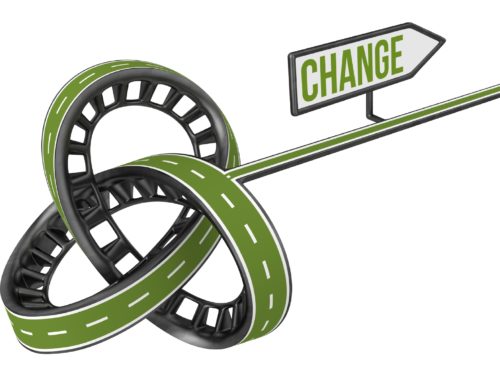If you want to succeed, you have to be passionate about your work.
It has to be true. Motivational speakers around the globe say so. The prestigious consulting firm Deloitte quantified it in a report that said, “Up to 87.7 percent of America’s workforce is not able to contribute to their full potential because they don’t have passion for their work.”
Steve Jobs said, “The only way to do great work is to love what you do.”
Passion about your work intensifies focus, provides the drive to persist when challenges arise, and enables creativity.
What if the messages about passion missed something? What if there is another “P” word that contributes to success? What if pride is just as – or maybe more – important than passion?
Rethinking Passion and Pride
Passion is sexy and hot. Lovers in the passion stage of a relationship are completely consumed by the object of their desire.
People who are passionate about their jobs exhibit the same zeal. They are, as Peter Drucker described, “monomaniacs with a mission.”
Passionate people in relationships and jobs can, however, ignore the warning signs of impending doom in favor of the hormone and brain chemical high that they experience.
It is also important to remember that passion can fade and relationships with too much of it early on can result in disillusionment. You see this at work when a formerly “passionate” employee becomes jaded and cynical because things just aren’t as they used to be in the past.
If you are fortunate to work every day at a career or job about which you are passionate, consider yourself lucky.
The reality is, according to the Deloitte study, there aren’t that many people who are passionate about what they do. You can’t easily toss the dispassionate masses aside and hire all new people who are in love with what you do.
Likewise, some jobs and industries just don’t elicit passion. Many companies need people to perform jobs that never appear on anyone’s most desirable list. They are often physically challenging, somewhat monotonous, and provide low wages. They may have limited room for advancement, and they exist in industries that are profitable but not sexy.
One of my manufacturing clients perfectly fits this description, and despite the difficult environment, people show up and do a great job every day. They aren’t particularly passionate about their job. They are driven by an immense pride in their performance.
A positive sense of pride is grounded in humility. It establishes and maintains a reputation for excellence. Pride doesn’t take shortcuts, and most important, it maintains high standards when passion for the job has diminished.
Hiring for Passion or Pride
My father was an auto and truck mechanic who spent much of his life as a shop manager. He always required potential new hires to bring their personal tools into the interview. His reasoning was simple: he was more interested in the pride a mechanic took in the use and care of his tools than the person’s passion for working on vehicles. Someone who uses a crescent wrench as a hammer will take short cuts that can affect quality or cause an injury.
At the end of the day, you can’t ignore the impact of passion. Virtually everyone raises their hand when I ask seminar participants if they would do their ideal job for one percent less than they make today.
We should, however, pay more attention to pride. Pride speaks to character, and character is an excellent indicator of the quality and commitment of the work.
Dr. Martin Luther King, Jr. said: “If a man is called to be a street sweeper, he should sweep streets even as Michelangelo painted, or Beethoven composed music, or Shakespeare wrote poetry. He should sweep streets so well that all the hosts of heaven and earth will pause to say, here lived a great street sweeper who did his job well.”
Most assume that Dr. King was talking about the importance of passion regardless of the status of your position. Perhaps, however, we missed the real message about having personal pride in your performance.
Randy Pennington is an award-winning author, speaker, and leading authority on helping organizations achieve positive results in a world of accelerating change. To bring Randy to your organization or event, visit www.penningtongroup.com , email info@penningtongroup.com, or call 972.980.9857.





